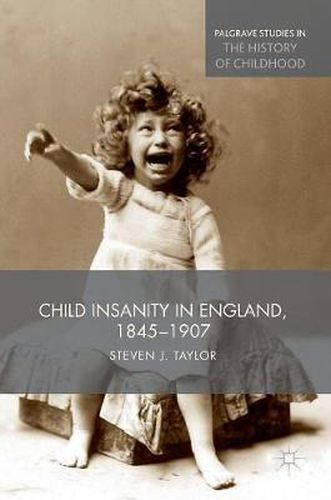Readings Newsletter
Become a Readings Member to make your shopping experience even easier.
Sign in or sign up for free!
You’re not far away from qualifying for FREE standard shipping within Australia
You’ve qualified for FREE standard shipping within Australia
The cart is loading…






This book explores the treatment, administration, and experience of children and young people certified as insane in England during the nineteenth and early twentieth centuries. It uses a range of sources from Victorian institutions to explore regional differences, rural and urban comparisons, and categories of mental illness and mental disability. The discussion of diverse pathways in and out of the asylum offers an opportunity to reassess nineteenth-century child mental impairment in a broad social-cultural context, and its conclusions widen the parameters of a “mixed economy of care’ by introducing multiple sites of treatment and confinement. Through its expansive scope the analysis intersects with topics such as the history of childhood, institutional culture, urbanisation, regional economic development, welfare history, and philanthropy.
$9.00 standard shipping within Australia
FREE standard shipping within Australia for orders over $100.00
Express & International shipping calculated at checkout
This book explores the treatment, administration, and experience of children and young people certified as insane in England during the nineteenth and early twentieth centuries. It uses a range of sources from Victorian institutions to explore regional differences, rural and urban comparisons, and categories of mental illness and mental disability. The discussion of diverse pathways in and out of the asylum offers an opportunity to reassess nineteenth-century child mental impairment in a broad social-cultural context, and its conclusions widen the parameters of a “mixed economy of care’ by introducing multiple sites of treatment and confinement. Through its expansive scope the analysis intersects with topics such as the history of childhood, institutional culture, urbanisation, regional economic development, welfare history, and philanthropy.